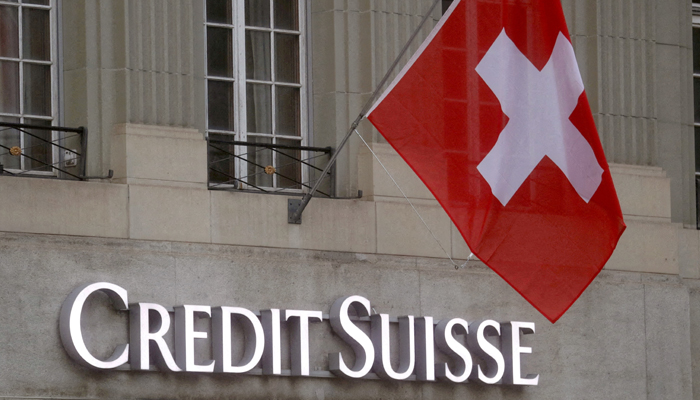What happened to Credit Suisse?
In Jan 2022, Horta-Osorio resigned as chairman for breaching COVID rules, 8 months after he was hired to fix bank
March 20, 2023

UBS agreed to buy rival Swiss bank Credit Suisse for 3 billion Swiss francs ($3.23 billion) and agreed to assume up to $5.4 billion in losses, in a shotgun merger engineered by Swiss authorities to avoid further market-shaking turmoil in global banking.
Swiss regulators have been forced to step in and orchestrate a deal to prevent a crisis of confidence in Credit Suisse from spilling over into the broader financial system. The deal is expected to close by the end of 2023.
The Swiss finance minister said the bankruptcy of a globally important bank would have created irreparable consequences for financial markets.
The Swiss central bank will supply substantial liquidity to the merged bank, it said at a news conference in the Swiss capital, Bern. It said the deal includes 100 billion Swiss francs ($108 billion) in liquidity assistance for UBS and Credit Suisse.
What caused Credit Suisse shares to fall?
A string of scandals over many years, top management changes, multi-billion dollar losses and an uninspiring strategy can be blamed for the mess that the 167-year-old Swiss lender now finds itself in.
The sell-off in Credit Suisse's shares began in 2021, triggered by losses associated with the collapse of investment fund Archegos and Greensill Capital.
In January 2022, Antonio Horta-Osorio resigned as chairman for breaching COVID-19 rules, just eight months after he was hired to fix the ailing bank.
In July, new CEO and restructuring expert Ulrich Koerner unveiled a strategic review - but failed to win over investors. An unsubstantiated rumour on an impending failure of the bank in the autumn sent customers fleeing.
Credit Suisse confirmed in February that clients had pulled 110 billion Swiss francs ($119 billion) of funds in the fourth quarter while the bank suffered its biggest annual loss of 7.29 billion Swiss francs since the financial crisis. In December, Credit Suisse had tapped investors for 4 billion Swiss francs.
On Wednesday, Saudi National Bank, the bank's top backer, told reporters it could not give more money to the bank as it was constrained by regulatory hurdles, while saying it was happy with the bank's turnaround plan.
Credit Suisse shares have lost more than 75% of their value over the past twelve months.
What should Credit Suisse do to rebuild investors confidence?
Credit Suisse has said it would borrow up to $54 billion to shore up liquidity and investor confidence but some analysts believe that is unlikely to be enough to soothe investors.
Winning the backing of strategic investors could be one option to shore up market confidence. It counts Qatar Investment Authority and Saudi conglomerate Oyalan Group among its investors.
In the early days of the global financial crisis in 2008, UBS took on Singapore sovereign wealth fund GIC as an investor but the stake sell-down ultimately resulted in a loss for GIC, a cautionary tale for potential backers.
Divesting stakes in various assets is an option as Credit Suisse owns an asset management business and a stake in SIX Group, which runs the Zurich stock exchange.
The bank has pivoted to a strategy of catering to rich clients while cutting back on its volatile investment banking business and has already announced plans to spin it off.
Swiss regulators are encouraging UBS and Credit Suisse to merge, one source with knowledge of the matter said, but added that neither bank wanted to do so.
What is the importance of Credit Suisse?
The bank ranks among the world's largest wealth managers and crucially it is one of 30 global systemically important banks, whose failure would cause ripples through the entire financial system.
Credit Suisse has a local Swiss bank, wealth management, investment banking and asset management operations. It has just over 50,000 employees and 1.3 trillion Swiss francs in assets under management at the end of 2022, down from 1.6 trillion a year earlier.
With more than 150 offices in around 50 countries, Credit Suisse is the private bank for a large number of entrepreneurs, rich and ultra rich individuals and companies.









